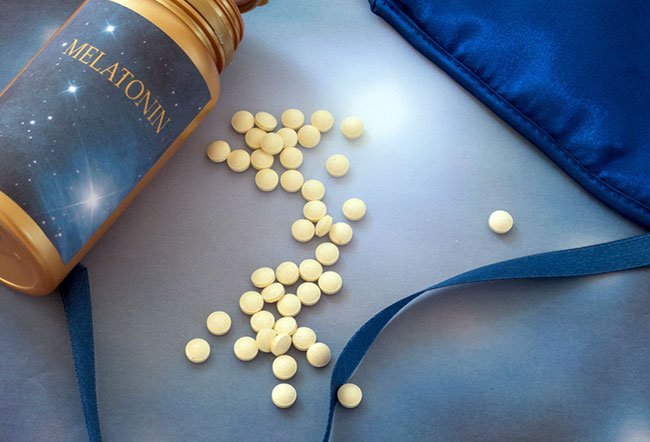Why You Shouldn't Give Your Child Melatonin

Putting your child to sleep may be your favorite routine or your worst nightmare depending on your kid’s inclination to sleep! Often, you are exhausted, your child refuses to sleep or sleeps fitfully through the night and you are tempted to give them something.
Many parents consider over-the-counter medications to help with their kid's 40 winks, but is that really a good idea? Most doctors do not agree, and their reasons are fair! Although doctors prescribe melatonin in kids who have insomnia along with autism spectrum disorder or attention deficit hyperactivity disorder (ADHD), melatonin should not be used in the following cases:
- Healthy children without sleep problems to promote restful sleep
- Teenagers in an attempt to force sleep onset to accommodate early school start times
What are the cons of giving melatonin to children?
Read on to find out why giving melatonin to an otherwise healthy child is a bad idea.
- Melatonin is a hormone (substance) produced by the brain's pineal gland. It is linked to the body's circadian rhythm (sleep/wake cycle). Melatonin release is stimulated by darkness and suppressed by light. The hormone was initially thought to be more important in lower animals. Only recently have we discovered the importance of melatonin in human behavior, sleep physiology, eating patterns, and mental health. In absence of clinical evidence of its entire spectrum, it is better to avoid the rampant administration of melatonin.
- Melatonin is sold as an over-the-counter sleep aid or supplement in the United States. Supplements are not regulated by the U.S. Food and Drug Administration (FDA). Therefore, the dosing and adverse event profile of melatonin are not widely studied. The natural origin of melatonin does not make it completely safe.
- Melatonin has a role in sexual maturity in lower animals. Whether it has a similar role in humans is yet uncertain. We do not know if and at what doses melatonin affects the ovaries and testicular function in teenagers and kids. The relationship between melatonin and human puberty is yet not proven or adequately studied. Hence, it is risky to administer.
- The long-term side effects of melatonin supplements in the body are uncertain. We do not know at what doses melatonin causes more side effects.
- The reliability of over-the-counter preparations is uncertain. These preparations may contain dangerous contaminants.
- We have few or no studies for melatonin in special populations such as those with insomnia along with anxiety, mood disorders, etc.
- Side effects from taking melatonin are daytime sleepiness, headaches, and giddiness. These may impair the child's school performance. Other rare side effects include abdominal pain, irritability, confusion, and depression. It is unknown how common or severe these side effects might be in children.
For whom is melatonin approved?
Melatonin is sometimes prescribed by the pediatrician for specific health or behavior conditions. The conditions include
- attention deficit hyperactivity disorder (ADHD) and insomnia,
- asthma,
- autism spectrum disorder, and
- atopic dermatitis.
In adults, melatonin may help those with jet lag.
How do I put my teenager to sleep on time?
You can put your teenager to sleep on time in the following ways.
- Encourage healthy sleep habits such as a consistent sleep schedule even on weekends.
- Avoid daytime naps.
- Avoid TV, smartphone, and iPad at least an hour before bedtime. Blue light from tablets or monitors can disturb the body’s endogenous melatonin cycle.
- Have dinner at least 2 hours before bedtime.
- Avoid food and drinks with caffeine after 6 p.m.
- Make sure the child's bed is comfortable, the room temperature is neither too warm nor too cold, and there is no noise near the bed.
If your child consistently has trouble falling asleep or staying asleep, call your pediatrician. Most sleep disturbances in children and adolescents can be managed with a fixed sleep schedule and behavioral therapy. In a limited number of cases, your child may need medications or supplements.
